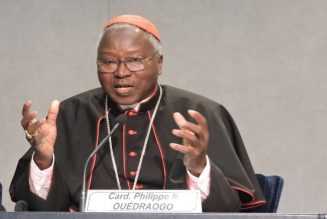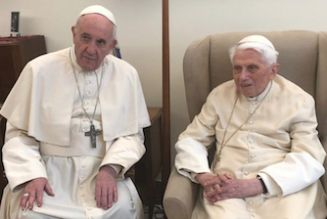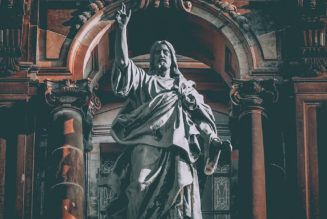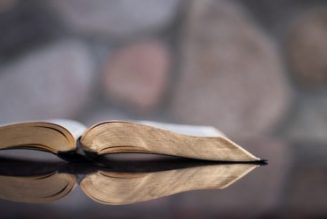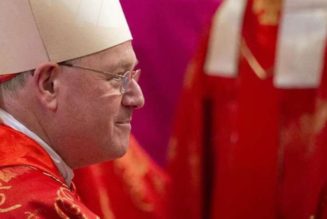 |
The year of 1969 was a time of the finest and the worst, when most institutions, equipped with the polished trophies of new science, seemed to be having a mental breakdown. A man walked on the moon. But there were riots, protests, and a moral fragmentation whose detritus now controls the seminal arbiters of culture. The tone of thought at the heart of it was a composite of bewilderment, fascination, and obtuseness. I have rarely written about the days when I was formed into a particular way of ordering my thinking, with a reluctance born of an intuition that looking back might make me brittle as a pillar of salt or soft as sentiment, for nostalgia can be a lethal alchemy. The sound and scene from fifty years past do not need to come alive again, for they never faded in my recollection. It seems like yesterday that I sat in a chapel of the ambulatory of the cavernous Cathedral of Saint John the Divine in New York. I signed an oath of conformity to the Thirty-Nine Articles with a quill pen from a silver inkstand and then processed behind a verger with a heavy mace to the sanctuary of the largest Gothic cathedral in the world, as it proudly called itself. For on the twentieth day of December in 1969, I was ordained an Anglican priest in a ceremony grand in itself but still small in the perspective of the important events of that year, unaware that twelve years later I would become a Catholic priest in another cathedral in the same city a short distance away.
The processional hymn was “I bind unto myself today.” While the original is attributed to the “Lorica”of Saint Patrick, the translation sung was by Mrs. Cecil Frances Alexander, wife of the Anglican Archbishop of Armagh. We had been imbued with an assurance that Patrick himself would have been an Anglican if given the opportunity, and this confidence was expressed by the bishop whose sarcophagus our procession passed: once when asked if there was salvation outside the Episcopal Church, the Right Reverend William Manning answered: “Perhaps so, but no gentleman would care to avail himself of it.”
A canon sonorously read from the great pulpit the proclamation of intent to ordain: “We, Horace Baden Donegan, Bishop of New York, Commander of the British Empire, Doctor of Divinity, et cetera, et cetera…” The hard “C” in Oxbridge pronunciation distinguished the Latin of the caesars from that of the popes. Years later, I learned that Bishop Donegan, always kind to me and never failing in graciousness, had been born in England of an Italian father named Donegani and had changed his name. When he died at 91, his obituary said that his hobbies included listening to Gilbert and Sullivan operettas and playing golf while spending summers in London at the Ritz. My first interview with him before entering seminary consisted in a conversation about the Queen Mother to whom he would later, at Clarence House, present me, and all the while a Corgi she had given him sat on my lap.
My seminary days at the General Theological Seminary in New York City were vibrant with the Oxford Movement, and life in that close was a time machine with no intrusion from the passing century. Erudite and patient tutors, often august moral paragons, taught verities older than the fashions of the day. If a creeping violence against classical reason was infesting the world outside, there was little sense of it within those walls. We took seriously the confidence of the seventeenth-century Bishop of Ely, Simon Patrick, for whom Anglicanism represented “that virtuous mediocrity which our Church observes between the meretricious gaudiness of the Church of Rome, and the squalid sluttery of Fanatick conventicles.” Or rather, as that Aristotelian golden mean was sometimes put in more strident ways, ill distinguishing ascetics from aesthetics, we were satisfied to have a privileged perch somewhere between the painted harlot on the hills of Rome and the slovenliness of the Evangelical wench in the valley.
The bell that rang the time for Evensong was also the signal for sherry before we went into chapel in our academic gowns. Fr. Louis Bouyer was of the opinion that the Daily Offices, as arranged in the Book of Common Prayer and sung to Anglican chant, provided “a means of education by worship of which no Church, Catholic or Protestant, has the equivalent today.” There is a certain wistfulness in that assessment, given that Bouyer and the Benedictine liturgist Bernard Botte, quickly and under duress cobbled together the Eucharistic Prayer II of the Novus Ordo—supposedly channeling Saint Hippolytus—at a trattoria in Trastevere. But in our high-Victorian chapel in Chelsea Square, all was redolent of John Betjeman’s reverie: of Anglo-Catholic congresses “The bells and banners—those were the waking days/When Faith was taught and fanned to a golden blaze.” And how can I forget the good men who tutored me in veneration of Scripture and holy song? They come to me now like ghosts, not ghastly as of Endor, but as good men who tethered themselves to a meandering heritage which glanced away from its flaws—and a propensity for hanging and quartering of saints—to acknowledge Christ as Lord of history and agent of virtue. There was enough space in that contented world to accommodate Anthony Trollope and P.G. Wodehouse along with the venerable divines Lancelot Andrewes and Thomas Ken.
❧
Has all that gone? Demographics make clear that where it once flourished there will be nothing left of Anglicanism after this remnant generation. How it happened so suddenly was a surprise only to the preoccupied. An Anglican bishop of Chinese birth who escaped the Maoist revolution told me that during an overnight stay he learned that his entire Chancery staff were clandestine Marxists. Even so, in any cultural revolution, there are bureaucrats smiling harmlessly while planning harmful New Dawns in a pantomime of Pentecost.
A valiant attempt by Pope Benedict XVI to preserve some of that ethos has taken shape in the Anglican Ordinariate, but it had a frail start. In the United States, many if not most of those involved were not reared in that tradition, nor have they been able to explain precisely what constitutes the ethos they want to preserve. For my part, I cannot think myself worthy of the gentle and selfless men and women—many formed in the better ways of an Edwardian haze—who eased the difficult rites of passage to maturity.
I am not aware that anyone from my day in the cathedral fifty years ago remains alive. Our Creator in his generosity made all things, but he neglected to give me perfect pitch as part of his bounty, as those who hear me chant at the altar readily know, but all those blessed and splendid souls I knew are providing some sort of descant—prescinding from the judgment of the holy doctors of the Church as to where they may be. The missionaries who took the Gospel to the ends of Empire, when the unsetting sun was high in the sky, wove part of the spiritual fabric I inherited, and in their name we fervently sang, in the trebles of choirboys, “From Greenland’s icy mountains to India’s coral strands…” Having since embraced the fullness of what was preached back then, I know that the babies I first baptized had cries no different from those I pour water on now, and the bond that binds those on sick beds—both long ago and now—is a strong one.
When I published my first book, warning that the Episcopal Church was embarking on a Gnostic course which, if altering the maleness of Holy Orders, would lead to an inversion of Holy Matrimony and a nightmare of eugenics, I was charged by many who said they once had hopes for me, with extravagance of statement and even disreputable fanaticism. It is no consolation now to know that I was right.
I am made anxious by the foreboding fact that there are those who, thinking themselves Catholic, would endorse the gross moral and doctrinal mistakes that have brought about the collapse of Anglicanism which, quivering in its last throes, is only sustained by prudently invested endowments. The collapse of the old tradition was predictable, having been founded on the venality of a rapacious king, but the foundation of the True Church on the Rock of Peter, is not a guarantee that winds will not whistle through empty convents and shrines in America and Europe, just as arid winds now blow over the vacant ancient dioceses of North Africa.
Let mine be a letter of affection without reproach, from one whose roots disdain emotion, to those who were patient with me when I first took up the promise to serve God, albeit in a mix of innocence and naīveté. There was a blessing and benison in my ignorance of the many trials that would lie ahead, for had I “loved to choose and see my path,” I would have hesitated. One cannot pretend that the path to Rome was more difficult than what one frequently found once having arrived. If there are more years allowed me in the course ahead, I may write a lengthier story of my experiences, though in some quarters it might be a precipitate of agitation. Suffice it to say that Saint John Henry Newman was an agent in my conversion. Once, standing in his pulpit in the University Church of Saint Mary the Virgin, I felt something like a bolt of lightning. At the moment, I did not understand it. Now I do. Newman said that as a Protestant “I felt my religion dreary, but not my life—but as a Catholic, my life dreary, not my religion.” Lacking his depth of soul, I never knew dreariness in any quarter. But if wistfulness is a pastiche of agony, I at least have known that no human journey is without interruptions of happiness.
Only after many years did I go back to my old seminary where my modest achievements were not without laurels. I went with hesitation and only at the bidding of a classmate who was visiting. It was hard to recognize the front building, and I was told by an officious clerk to apply by a side gate. Having rung the bell, a voice on an intercom told me to return the following Monday. Stranger still was the day I went, after many years, to the huge Cathedral of Saint John the Divine to pay respects the day before his funeral to Horace William Baden Donegan of many honors, et cetera, et cetera. His coffin reposed in the “bare ruin’d choirs, where late the sweet birds sang.” I was alone save for one silent clergyman in a tweed jacket and a nun moving her lips in prayer.
There is no sadness in all this, for days are too short for the indulgence of reverie and too full of the graces Our Lord never ceases to send. I have only gratitude for the exalted moments and for those occasional depths that are nothing other than harbingers of rising again. There are lessons to be learned in everything for an alert mind, and the ardent lesson I have learned is that there is the Word that never passes away, and any words in substitution for that Word witness to the unchanging God by their own changing.
Round the decay
Of that colossal wreck, boundless and bare
The lone and level sands stretch far away.


